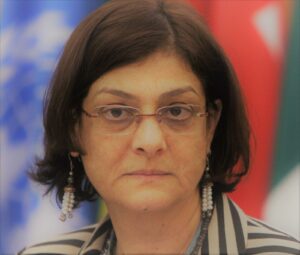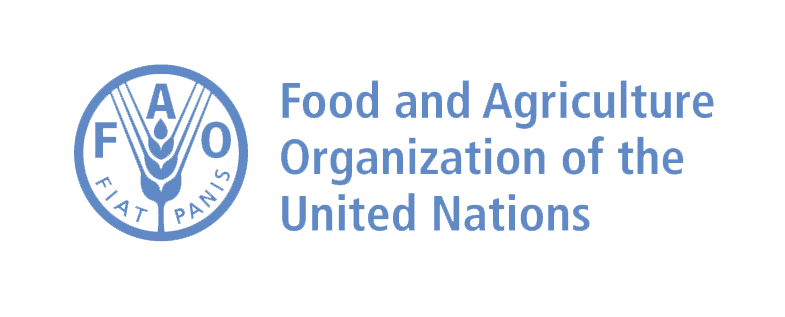School meal nutrition standards as a tool to support the right to food in schools
Food and Agriculture Organization of the United Nations (FAO)
Aktivierung erforderlich
Wir möchten Sie darauf hinweisen, dass nach der Aktivierung Ihre Daten an Youtube übermittelt werden.
Summary of topics and results
The Expert Panel entitled “School meal nutrition standards as a tool to support the right to food in schools”, hosted by the Food and Agriculture Organization of the United Nations (FAO) and the World Food Programme (WFP), featured different stakeholders discussing how to step up actions to satisfy commitments and meet targets in relation to schoolchildren’s right to food.
The event was moderated by Nancy Aburto, Deputy Director of the FAO’s Food and Nutrition Division. During the first session, Fatima Hachem, Senior Nutrition Officer at the FAO, presented the FAO–WFP project that aims to develop guidance for governments to set context-specific and data-driven school meal nutrition standards using a food systems and right-to-food lens, and to enhance the global recognition of nutrition standards for school meals as instruments for protecting children and adolescents’ right to food.
Hachem explained that, given the investments that governments are making, it is necessary to ensure that school meal programmes effectively contribute towards the diet and nutrition priorities of children and adolescents, with a particular focus on the most vulnerable. A way of doing so is to define and implement context-specific and evidence-informed nutrition standards which go beyond the nutrient composition of meals, to also integrate recommendations on meal experience, socialisation, equity, social justice, environmental sustainability and food learning.
The subsequent panel discussion involved Neema Lugangira, Member of Parliament of Tanzania, and Fernanda Pacobahyba, President of the National Fund for Education Development of Brazil, who, although not physically present in Berlin, had provided her input to the discussion in advance. Lugangira highlighted the significance of prioritising the incorporation of mandatory school meal nutrition standards into legislation, and outlined specific actions that parliamentarians can take to support children’s right to adequate food in schools. Pacobahyba provided remarks on the integration of nutrition standards into the legal framework of Brazil’s National School Feeding Programme; as one of the co-chairs of the School Meals Coalition, she also elaborated on the benefits she envisions for member countries that adopt holistic mandatory nutrition standards for their meal programmes.
The session was completed by Bite Back activist Jacob Rosenberg who, drawing on his own experience, presented the role of youth advocates to support the nutrition quality of school meals and overall of a healthier food environment. In particular, he underlined that school lunch time provides a unique time for students to connect and relax, and that they should be able to do this without presence of unhealthy food.
Sigrid Müller, the Deputy Director of WFP’s Global Office Berlin, provided the closing remarks, highlighting the three key takeaways, namely the need to:
• establish and implement nutrition standards that are based on context-specific and multisectoral evidence;
• involve students and school governing bodies when making decisions about standards; and
• enshrine the standards into legislation to guarantee schoolchildren and adolescents’ right to food.
Speakers

Nancy Aburto
FacilitatorDeputy Director, Food and Nutrition Division / FAO Show CV / Vita
CV / Vita
Dr Nancy Aburto is the Deputy Director of the Food and Nutrition Division of the FAO, where she supports the strategic planning, development and management of the broad portfolio of FAO’s work in nutrition. With nearly 20 years of experience working globally in the field of nutrition, her expertise spans acute undernutrition, overweight/obesity and the double burden of malnutrition; nutrition science research; nutritional epidemiology; and large-scale programming and policy.
Prior to joining FAO, Dr Aburto worked at the UN World Food Programme, World Health Organization, US Centers for Disease Control and Prevention and the Mexican National Institute of Public Health. Dr Aburto, a United States national, received a PhD in Nutrition and Health Sciences from Emory University, a Master’s Degree from the University of Georgia, and a Bachelor’s Degree from Duke University.

Fatima Hachem
PanellistTeam Leader, Nutrition Education and Consumer Awareness Group, Food and Nutrition Division / FAO Show CV / Vita
CV / Vita
Dr. Fatima Hachem is the Nutrition Education and Consumer Awareness Team Leader in the Food and Nutrition Division of FAO. Previously, she was for 15 years the Regional Food and Nutrition Officer in the FAO Regional Office for the Near East and North Africa, where she served the 19 member countries in the region in different areas of nutrition, food security and food safety including developing national capacity, policy advice, drafting analytical reports, formulating projects and providing technical backstopping.
Before joining FAO, she was a senior lecturer in Food Science and Nutrition and the leader of the BSc course in Nutrition and Health at the University of Teesside, UK, for four years, and a community nutrition researcher at the University of Lyon 2, France, for three years.
She is a nutritionist/food scientist by education having a BSC in Nutrition and Dietetics and an MSC in Human Nutrition from the American University of Beirut, Lebanon, and a Ph.D in Food Science from the University of Reading, UK.

Neema Lugangira
PanellistMember of Parliament in Tanzania / Tanzania Government Show CV / Vita
CV / Vita
Hon. Neema Lugangira (MP) is a Member of Parliament in Tanzania who bring forward extensive experience and successful track record in championing policy advocacy and legislative reforms across different sectors. As a Parliamentarians her personal prioritised agendas include food systems, nutrition and climate action, digital inclusion and development, global and community health, gender equality in politics and digital democracy (incl. election observation) in Tanzania and across Africa.
She also serves as the Founder and Chair of the African Parliamentary Network on Internet Governance (APNIG), which aims to strengthen Parliamentarians role on digital development in Africa; Co-Founder and Member of the Steering Committee of the African Food Systems Parliamentary Network; and Board Member of Global Parliamentary Network on the World Bank and IMF.
At national level, Hon. Lugangira is the Founder of two NGOs; Agri Thamani, which is committed to ending malnutrition through nutrition advocacy, improve community nutrition in schools, elderly & hospitals; strengthen food systems and climate action; and Omuka Hub, which is focused on accelerating digital Tanzania through digital inclusion & development, digital rights & democracy; safe use of new tech like artificial intelligence and digital advocacy with special focus on peripherals.
Whilst Internationally, Hon. Lugangira is a Member of the Multi-Stakeholder Advisory Group of the United National Internet Governance Forum; the International Parliamentary Network on Education (IPNEd) Regional Representative for Africa; the UNITE – Global Parliamentarians Network for Global Health; Global Co-Chair of the Global Parliamentary Group to Combat Neglected Tropical Diseases, Vital Voices Fellow; WSIS Gender Trendsetter for Advancing Digital Gender Inclusion; and Tanzania Parliament Appointed Ambassador for the Women Political Leaders Organisation.

Jacob Rosenberg
PanellistYouth Board Member of Bite Back 2030 / BiteBack Show CV / Vita
CV / Vita
Jacob Rosenberg is a 19-years-old student at Bournemouth University, and an activist from Bite Back. He has been involved for over four years since the organization’s inception in 2019, so he has really seen the growth of their campaign. He is particularly passionate about ensuring all children have access to a healthy meal at school every day, as well as healthier sports environments.
Close CV / Vita

Fernanda Pacobahyba
PanellistPresident / National Fund for Education Development, Brazil

